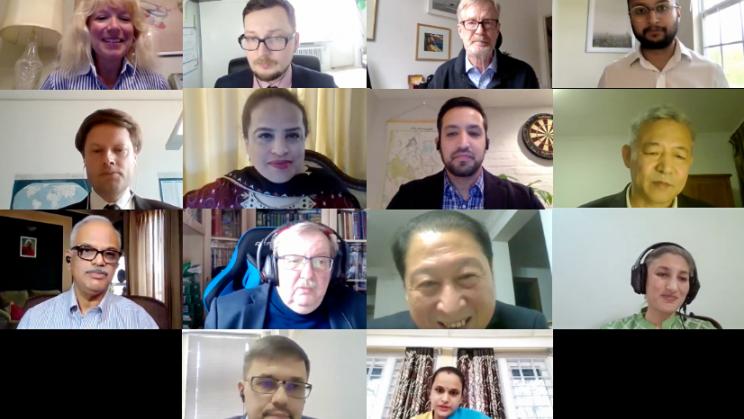
On 29 April, SIPRI hosted a virtual workshop on ‘Nuclear CBMs and Transparency in South Asia: Voices from India, Pakistan, China, Russia and the USA’. The event was the second workshop organized as part of SIPRI's project ‘Assessing Nuclear Deterrence Risks and Challenges in South Asia’.
This webinar of 80 participants paired speakers and discussants from five countries to examine concrete proposals on engagement, transparency and confidence-building measures on nuclear postures and strategic technologies in the context of South Asia. After selecting near- and longer-term challenges, participants proposed specific recommendations on adopting a no-first-use policy, addressing nuclear modernization, and preventing nuclear accidents and acts of terrorism. They also considered targeted arms control measures covering tactical nuclear weapons, sea-based nuclear deterrent platforms and dual-use missiles and systems. The participants discussed steps for confronting challenges associated with nuclear command, control and communications, ballistic missile defence, multiple independently targetable re-entry vehicles (MIRVs) and emerging technologies that include the military applications of artificial intelligence.
The event was conducted under the Chatham House Rule.
About the project
The SIPRI project ‘Assessing Nuclear Deterrence Risks and Challenges in South Asia’ seeks to facilitate regional dialogues to enhance awareness of the escalatory risks associated with expanding nuclear capabilities and introducing advanced technologies. The project aims to provide background and context for understanding nuclear risks through these interactions, particularly given recent tensions at the India–Pakistan and China–India borders. It also seeks to use regional dialogues to identify nuclear risk prevention and mitigation measures involving regional and external actors. The project’s long-term objective is to expand the dialogue on nuclear postures beyond the five nuclear weapon state members of the 1968 Treaty on the Non-Proliferation of Nuclear Weapons (Non-Proliferation Treaty, NPT). While acknowledging the importance of the dialogue among these five countries, this project explores potential ways to engage nuclear-armed states inside and outside the NPT framework in substantial exchanges on doctrines and capabilities. In addition to the recent workshop, the project has posted five online commentary pieces, hosted a workshop in December 2020, launched a video series in February 2021 and published a report in April 2021. Other work is forthcoming. This project is funded by a grant from the German Federal Foreign Office.